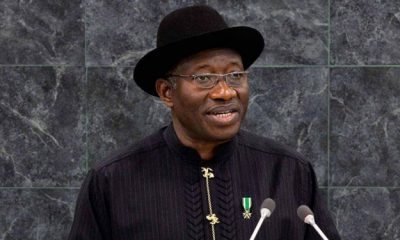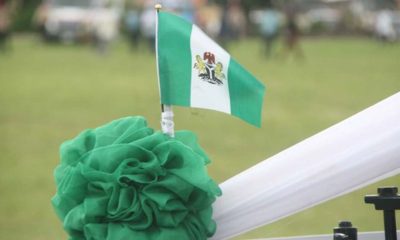POLITICS
Nigeria’s 2023 Elections and the Challenges Ahead
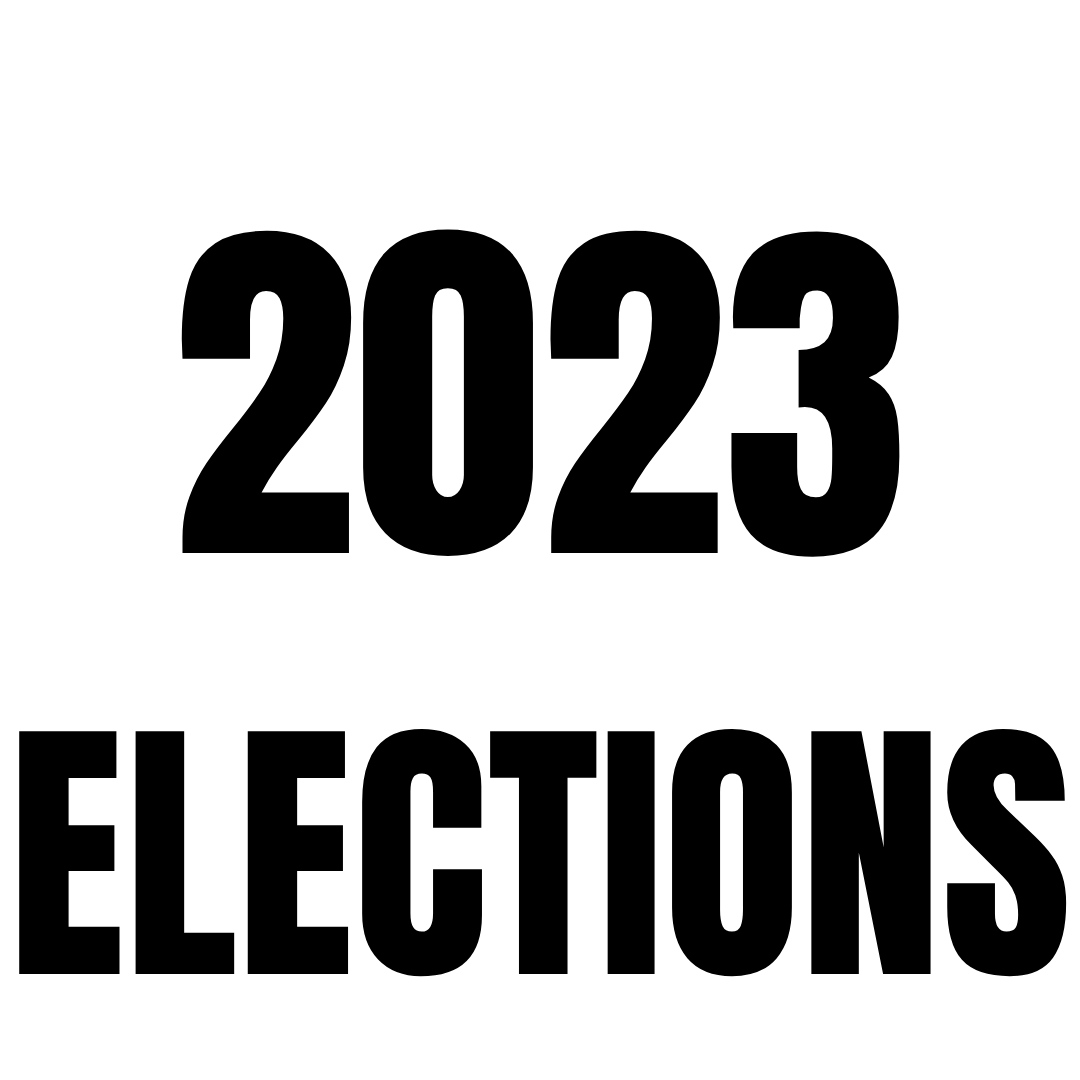
By Idayat Hassan
With dates for the 2023 Nigeria general elections now set by the Independent National Electoral Commission (INEC) – the presidential and National Assembly poll is set for February 25 and governorship and other subnational elections are scheduled for March 11 – the countdown is well underway for what will be the seventh consecutive elections since the return to democracy in 1999.
This represents 23 years of unbroken democracy; the longest period in the country’s history.The 2023 elections will be conducted under a new electoral framework, the Electoral Act 2022. The Act allows INEC to review results made under duress or financial inducement, extends the time for campaigns from 90 to 150 days, and provides for the use of technology to determine the mode of voting and transmission of results.
Pundits believe these measures can help manage situations where inaccurate results are returned, expand the opportunity for politicians to visit the nooks and crannies of the country if they so desire and cure the chaotic, vulnerable manipulation and unnecessarily opaque process of aggregating results.However, instead of reducing the role of money in politics, the Act has increased the campaign finance limit from N1 billion to N5 billion for presidential candidates. The ceiling for all other elected positions have also been increased fivefold, but without any efforts to improve the scrutiny of compliance limits, they are still likely to be exceeded.
Presidential aspirants
The Electoral Act requires that parties submit the names of their candidates 180 days before the elections, thereby allowing for the legal resolution of fractious primaries ahead of the voting day. In signing the Electoral Act, President Buhari also requested that the section that precludes political office holders from participating in party primaries and voting during congresses be deleted, as it breaches participation rights. However, the National Assembly refused to make this amendment. This meant that several of Buhari’s ministers were unable to contest for elective office unless they first resigned their positions.
In late May, the main opposition Peoples Democratic Party (PDP) delegates chose a long-time presidential aspirant, Atiku Abubakar as their candidate, as they did in 2019. He will face off against Asiwaju Bola Ahmed Tinubu of the ruling All Progressives Congress (APC). On June 8, Tinubu emerged from an initial field of 28 candidates who paid N100 million each to purchase the party nomination forms. Just like at the PDP convention, when the decisive movement was delivered by the governor of Sokoto’s decision to stand down, handing his delegate votes to Atiku, the APC presidential primaries saw frontline South-West candidates such as governor of Ekiti State, Kayode Fayemi and former Ogun governor, Ibikunle Amosun, stepping down, and handing Tinubu their bloc votes.
The Old and the New?
Tinubu, 70, and Atiku, 75, are now the frontline candidates in the forthcoming elections and both have significant war chests at their disposal. They previously worked together in 2007 when Tinubu’s party, the Action Congress, fielded Atiku, then the outgoing vice president, as their presidential candidate, and in 2015 when both were frontline promoters of the APC. However, with 60 per cent of Nigeria’s population being youths and with many among that generation already disgruntled with the ruling class, following events such as the #EndSars protest against police brutality, the prospect of widening an intergenerational divide is clear.
Potential third forces that could increase the likelihood of Nigeria’s first ever presidential run-off election are Peter Obi, 60, who withdrew from the PDP primary contest and will now run as the Labour Party flagbearer, and Rabiu Musa Kwankwaso, 65. While Obi has cultivated a significant online following among younger voters, Kwankwaso is equally popular among youths in his native Kano State. The attempt to create a formidable third force seems to have been midwifed as the Peoples Redemption Party, New Nigeria Peoples Party (NNPP), National Rescue Movement (NRM) and the Nigeria Labour Congress have all agreed, for now, to an alliance to run under the banner of the Labour Party. A joint Obi-Kwankwaso ticket could shake up the presidential race.
Challenges Ahead
The 2023 elections will be some of the most challenging to conduct in Nigeria as the country battles nodes of complex insecurity. The Boko Haram conflict that defined the 2015 election is yet to be quelled, and with bandits operating across the North-West, violent secessionist agitation spiraling in the South-East and farmer-herder clashes ongoing across the country, the 2023 election is set to take place amidst nationwide insecurity. The June 5 attack on a church in relatively stable Ondo State, in South-West Nigeria, which saw more than 50 people killed, was a stark reminder of the insecurity challenges that will make the safety of election materials and personnel a major challenge for INEC.
INEC chairman, Professor Mahmud Yakubu, is the first election body head to get a second term in the country’s history. But whilst Yakubu has done well to build on the successes of his predecessor, Attahiru Jega by adopting innovation and consulting regularly with key stakeholders, Nigeria’s zero-sum political game with desperate and disparate actors, out to win at all costs, still poses a sizeable threat to electoral integrity, despite technological advances. The forthcoming off-cycle governorship elections in Ekiti (June 18) and Osun (July 16) states will offer an early indication of what to expect in the 2023 general elections. But the financial implications of an extended election season are already putting strain on an economy that has hobbled in and out of recession in the last seven years. The naira is now trading at over N600 to one $1 on the black market, as thousands of dollars are dispersed by political aspirants at all levels to shore up support.
Voter turnout is another area of concern. Just 34.75 per cent of eligible Nigerians voted in 2019 and a similarly low, or lower, turnout in 2023 would further undermine the credibility of the poll. But given the prevailing insecurity across the country, the choice available when it comes to the presidential race, difficulties in registering for permanent voter cards in insecure areas in Northern and South-East Nigeria and the likely rampant misinformation and disinformation that will emerge in the lead up to voting day, designed to draw distinct divisions and undermine the credibility of key election stakeholders, means that fewer Nigerians may vote next year than in 2019.
Nigeria may be experiencing its longest run of uninterrupted democracy but its quality remains very much in need of improvement.
Idayat Hassan is director of the Centre for Democracy and Development (CDD).
POLITICS
Zamfara North Communities Condemn Gov. Lawal’s Leadership as Total Failure
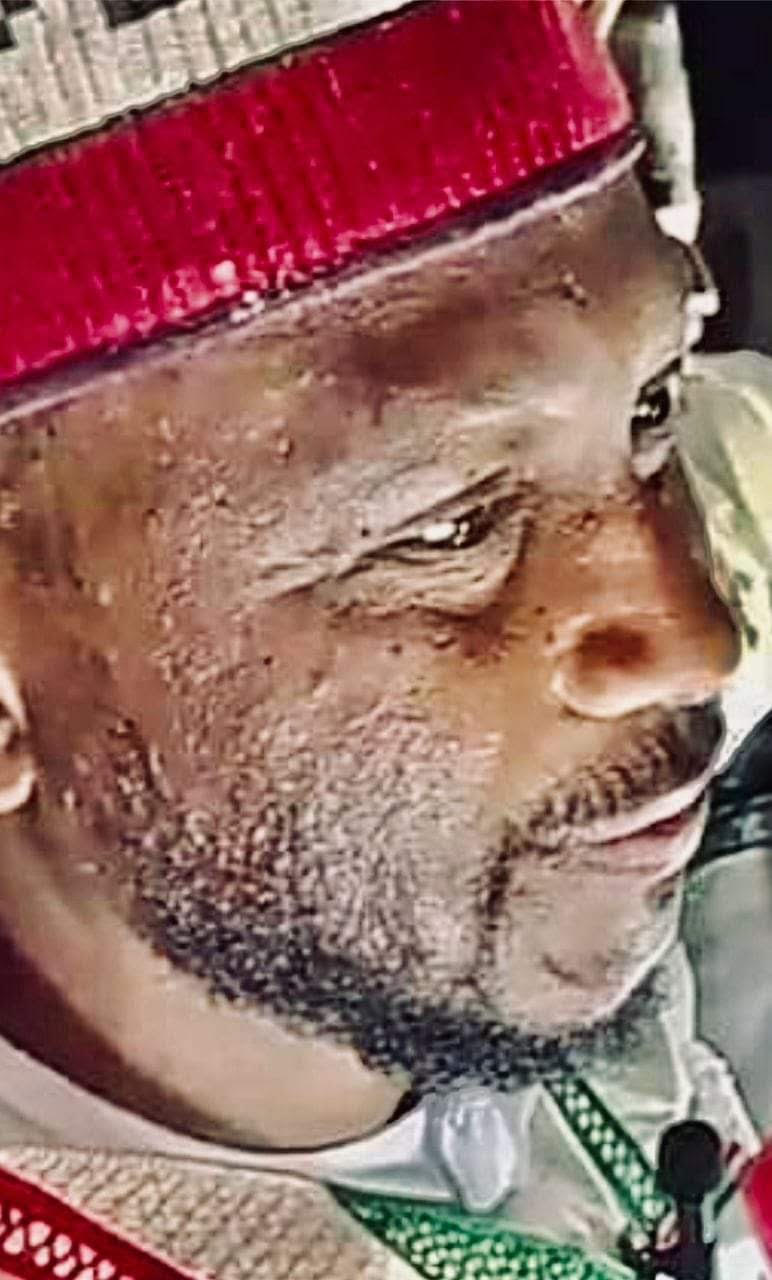
By David Torough, Abuja
A coalition representing four local government areas in Zamfara North Senatorial District has launched a scathing attack on Governor Dauda Lawal, branding his administration a “monumental failure” after two years in office.
In a statement on Wednesday, the coalition—made up of Kauran Namoda, Birnin Magaji, Shinkafi, and Zurmi communities—accused Governor Lawal of abandoning his campaign promises and worsening the region’s insecurity, poverty, and infrastructure decay.
Speaking on behalf of the coalition, Chairman Yakubu Ibrahim Shinkafi lamented the dire conditions residents now face.
“People can no longer sleep with both eyes closed.
They cannot go to their farms. They wake up and sleep in hunger,” Shinkafi said.“Yet, during the 2023 campaign, he promised to end insecurity and hunger within two weeks.”
The coalition highlighted the unrelenting wave of banditry, kidnappings, and extortion plaguing their communities.
Shinkafi claimed thousands have lost their lives, while others have been forced to pay millions in ransoms, even as the state government celebrates its second year in office.
“What is he celebrating? He is celebrating failure,” Shinkafi remarked bitterly.
“The situation has deteriorated. Bandits now operate with confidence while the government remains silent.”
Governor Lawal, who came into office in 2023 on promises of swift action to tackle insecurity, had assured voters that peace would return within two weeks of his inauguration. But two years on, residents say the crisis has only deepened.
“Not only has peace remained elusive, but insecurity has now become a permanent nightmare,” the coalition’s statement read.
The group commended the Nigerian Army and other security forces for their sacrifices but argued that the state government has failed to provide necessary support and leadership.
“There is no adequate intelligence cooperation, no visible engagement with communities, and no strategic direction from the governor,” the statement added.
“He has abandoned his duties and disconnected from the people’s plight.”
Beyond security concerns, the coalition criticised the collapse of essential services, pointing to deteriorating healthcare, education, and infrastructure.
“The hopes people had when Governor Lawal took office have turned into despair,” Shinkafi said.
“Our communities are calling for a serious reassessment of priorities. We demand leadership and an end to the deception.”
“Zamfara State deserves better,” the statement said .
“We will not allow our lives to be destroyed under the weight of a failed administration.”
POLITICS
Tinubu’s 2 year: APC Lauds Nigerians for Understanding

The All Progressives Congress (APC), has commended Nigerians for their understanding and support to President Bola Tinubu-led administration in the last two years.
Mr Felix Morka, the party’s National Publicity Secretary made the commendation on behalf of the party, while speaking with newsmen in Abuja on the midterm anniversary of the Tinubu-led administration.
He said that the country was on a progressive path under Tinubu, adding that more support and understanding were needed from the citizens.
“We applaud Nigerians for their invaluable understanding and support so far and we crave their continued support to Mr President for the second half of the tenure and beyond.
“The support will enable the administration unpack the fullness of the Renewed Hope Agenda for the overall good of Nigerians,”Morka said.
He noted that in the face of daunting generational challenges, Tinubu’s administration had demonstrated political will never before recorded in our contemporary political history.
Morka said that like a confident surgeon, Tinubu had enacted and continued to enact policy reforms skillfully designed to give the country, not just a chance for urgent resuscitation, but a real shot at rejuvenating its wellness.
He said that the APC leadership remained conscious of the challenges Nigerians were going through because of the inevitable policy reforms the Tinubu-led administration had to take in the interest of all.
He added that in all, the best interest and well-being of the current and future generations remained at the core of Tinubu’s thinking and actions.
Morka noted that some of the reforms of the administration include; the removal of fuel subsidy and harmonising multiple exchange rates among others.
These he said were inevitable and crucial steps to stabilising and positioning the economy for steady and sustainable growth.
“At midterm, the pall of gloom over our nation has been lifted and replaced by a dawn of rebounding optimism and progress.
“Signs and indications have never been clearer in our recent history, of a resurgent economy heralding strong prospects of a vibrant and prosperous future for our country, “Morka said.
He said that the Tinubu-led administration’s relentless war against oil theft had helped boost oil production, adding that our production now standing upwards of 1.8mbpd.
The APC spokesman said this surpassed the Organisation of Petroluem Exporting Countries (OPEC’s) quota, for the first time in recent history.
According to him, the massive reforms and investments in oil and gas sectors totaling over 8 billion dollars, had improved the ease-of-doing-business in the country.
He said that the development had revitalised stock market for enhanced profitability and attracted Foreign Direct investments (FDIs) in excess of 50 billion dollars.
Morka added that under the administration, the country had posted trade surpluses all for consecutive quarters since 2023.
“The historic Gross Domestic Product (GDP), growth of 3.38 per cent in Q4 of 2024 has been lauded by both the International Monetary Fund (IMF) and the African Development Bank (AfDB) as incontrovertible index of a rebounding economy.
“In its determination to enhance peace and security, the administration has left no stone unturned in its renewed fight against terrorism and banditry.
“Thankfully, the massive supports for military welfare and funding of the Armed Forces have resulted in the neutralising of more than 13,500 terrorists and arrests of nearly 18,000.
“With many internally-displaced persons (IDP’s) camps being shut down and displaced persons returning to their homelands, farmers are now accessing their farms with attendant crash in food prices,” Morka stated.
He said the administration had done remarkably well in the education and health sectors as well as improving basic infrastructure across the country.
“In the critical health sector, the administration has equally left indelible footprints by approving 21 strategic policies with direct bearing on the health of Nigerians.
“It has disbursed more than N80 billion to revatilise more than 8,000 primary healthcare centres (PHCs) across the 36 states and the Federal Capital Territory (FCT).
“Empirically, a lot more have been accomplished in the creative industry, solid minerals, power, energy, oil and gas sectors among others,’’ he said.
Morka advised Nigerians to continue to support the administration, saying that Tinubu is determined to serve Nigerians better in the concluding half of his four-year tenure,” he said.(NAN)
POLITICS
Edo poll: We Won’t Allow Injustice to go Unchallenged, Ighodalo Says
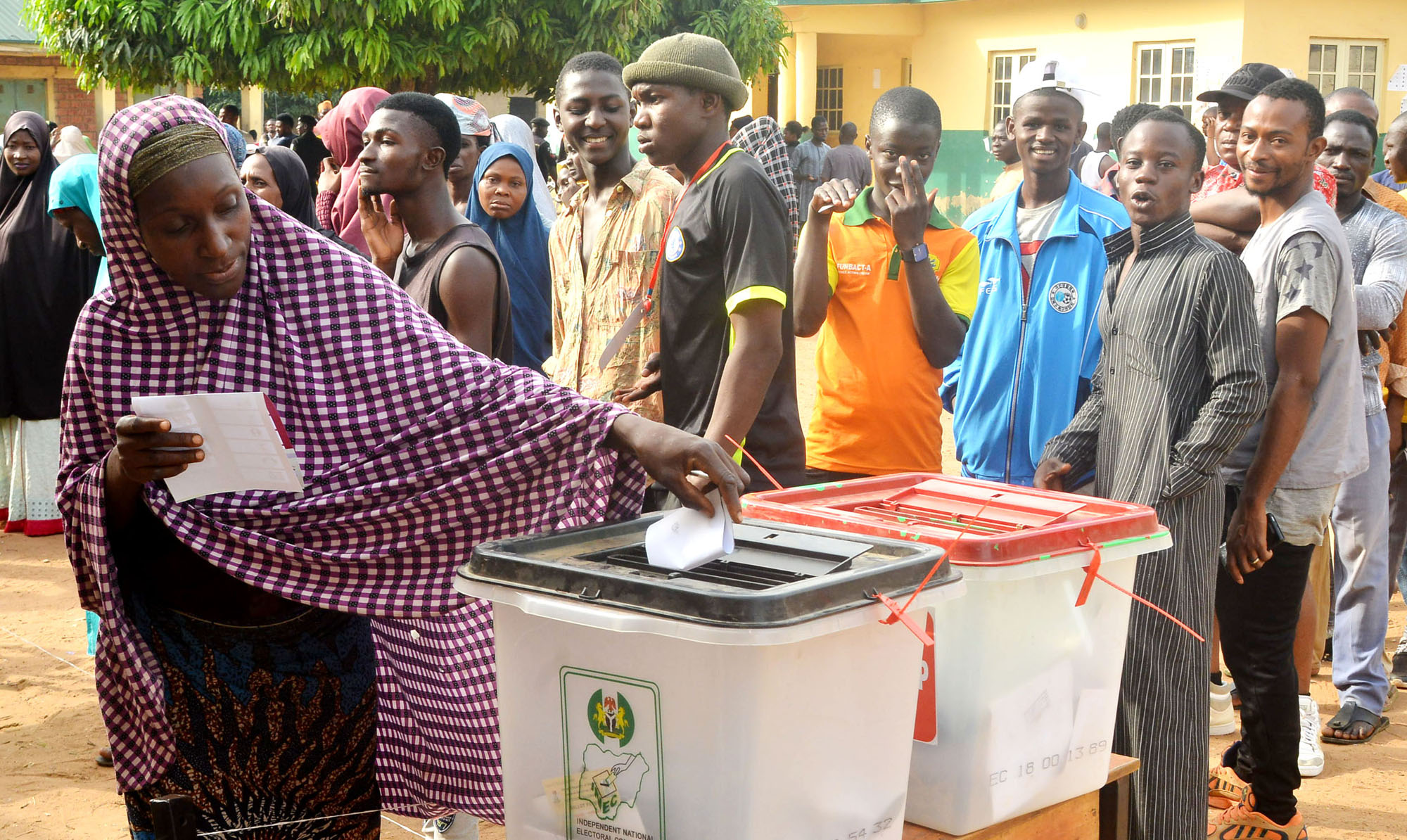
Mr Asue Ighodalo, the Peoples Democratic Party (PDP)’s candidate in the Sept. 21, 2024 governorship election in Edo, has said that he would not allow injustice to go unchallenged.Ighodalo stated this in a statement on Thursday in reaction to the Court of Appeal’s judgment which affirmed the electoral victory of Gov.
Monday Okpebholo of the All Progressives Congress (APC). “My good people of Edo State, today, the Court of Appeal delivered its judgment on our petition challenging the declared outcome of the September 21st, 2024 governorship election in Edo State. “As with the judgment of the tribunal, we have received this decision with deep disappointment, but also with unwavering resolve to continue our pursuit of justice.“As democrats and patriots, we remain anchored in our belief in the rule of law.“But we cannot, and will not, allow injustice to go unchallenged,” he said.According to him, I have therefore instructed my legal team to approach the Supreme Court of Nigeria to seek redress.“We do so for every voter who queued patiently with hope in their hearts, for every young person who dreams of a better Edo State, and for every Nigerian who still believes that democracy must be well practised to yield a great country.“The Supreme Court now bears a profound responsibility, not only to interpret the law and apply same to available facts, but to defend the democratic principles that give the law its meaning.“We approach the apex court with full confidence in its integrity, its independence, and its role as the final guardian of justice in our republic.“We believe their Lordships will consider not just the letter of the law, but the greater implications for democracy, justice, and public trust.“The eyes of Edo people, and indeed all Nigerians, now look up to the Supreme Court with hope,” he said.He said though he acknowledged the court’s pronouncement, he believed that the judgment, like that of the tribunal before it, “failed to address the grave concerns we raised regarding widespread acts of non-compliance with, and clear violations of the Electoral Act.”According to him, our struggle has never been about personal ambition.“It has always been about standing with the people of Edo State and defending their sacred right to freely choose their leaders through a credible, transparent and fair election.“That right was brazenly subverted on September 21st, 2024.“The decisions of both the Tribunal and the Court of Appeal, though rendered in the name of the law, in effect ignore the will of the people and reward blatant electoral irregularities,” he added.Ighodalo, however, urged all his supporters to remain peaceful, vigilant and steadfast.“This is not the end. It is simply the next chapter in our collective struggle for truth, justice, and a bright future for our dear Edo State.“We remain resolute. We remain committed. We remain undaunted.“And we shall not rest until the voices of our people are heard and their stolen mandate restored,” he concluded.(NAN





